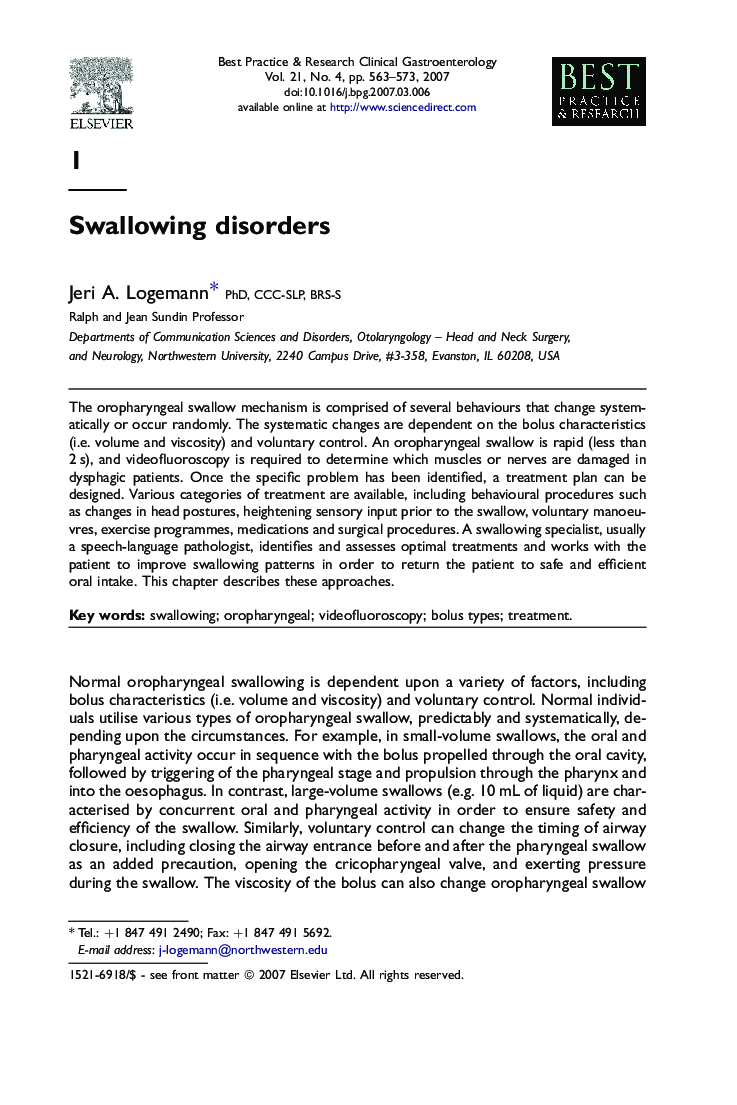| Article ID | Journal | Published Year | Pages | File Type |
|---|---|---|---|---|
| 3254805 | Best Practice & Research Clinical Gastroenterology | 2007 | 11 Pages |
The oropharyngeal swallow mechanism is comprised of several behaviours that change systematically or occur randomly. The systematic changes are dependent on the bolus characteristics (i.e. volume and viscosity) and voluntary control. An oropharyngeal swallow is rapid (less than 2 s), and videofluoroscopy is required to determine which muscles or nerves are damaged in dysphagic patients. Once the specific problem has been identified, a treatment plan can be designed. Various categories of treatment are available, including behavioural procedures such as changes in head postures, heightening sensory input prior to the swallow, voluntary manoeuvres, exercise programmes, medications and surgical procedures. A swallowing specialist, usually a speech-language pathologist, identifies and assesses optimal treatments and works with the patient to improve swallowing patterns in order to return the patient to safe and efficient oral intake. This chapter describes these approaches.
